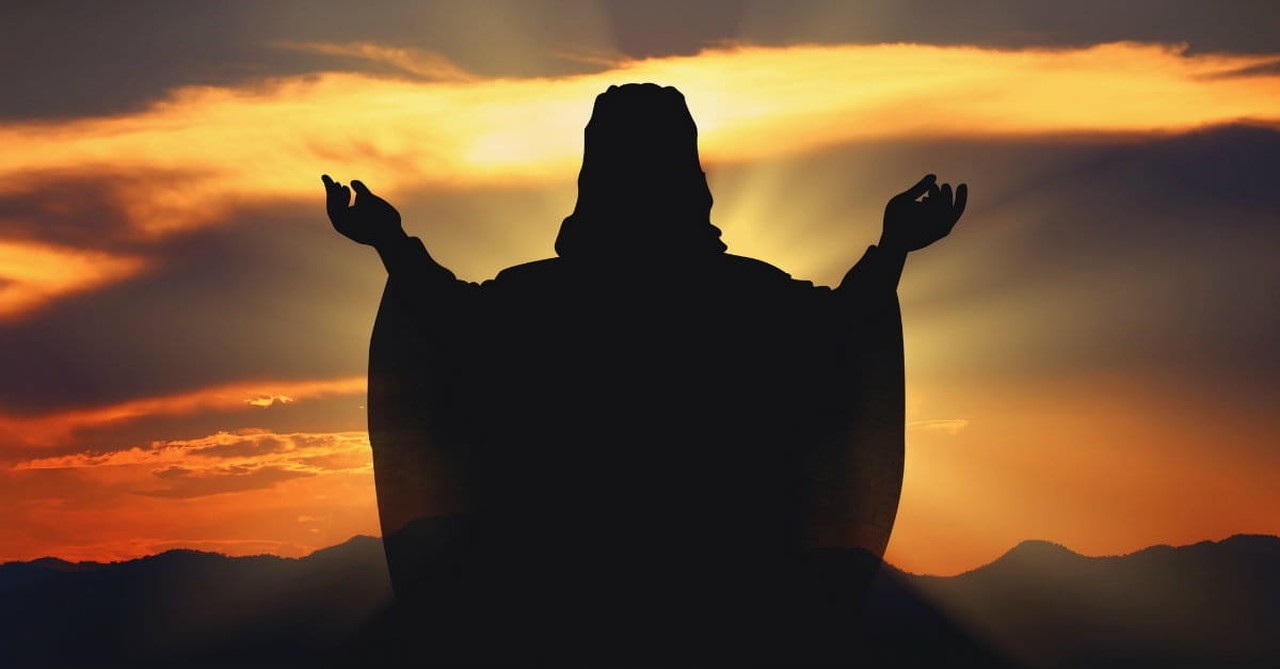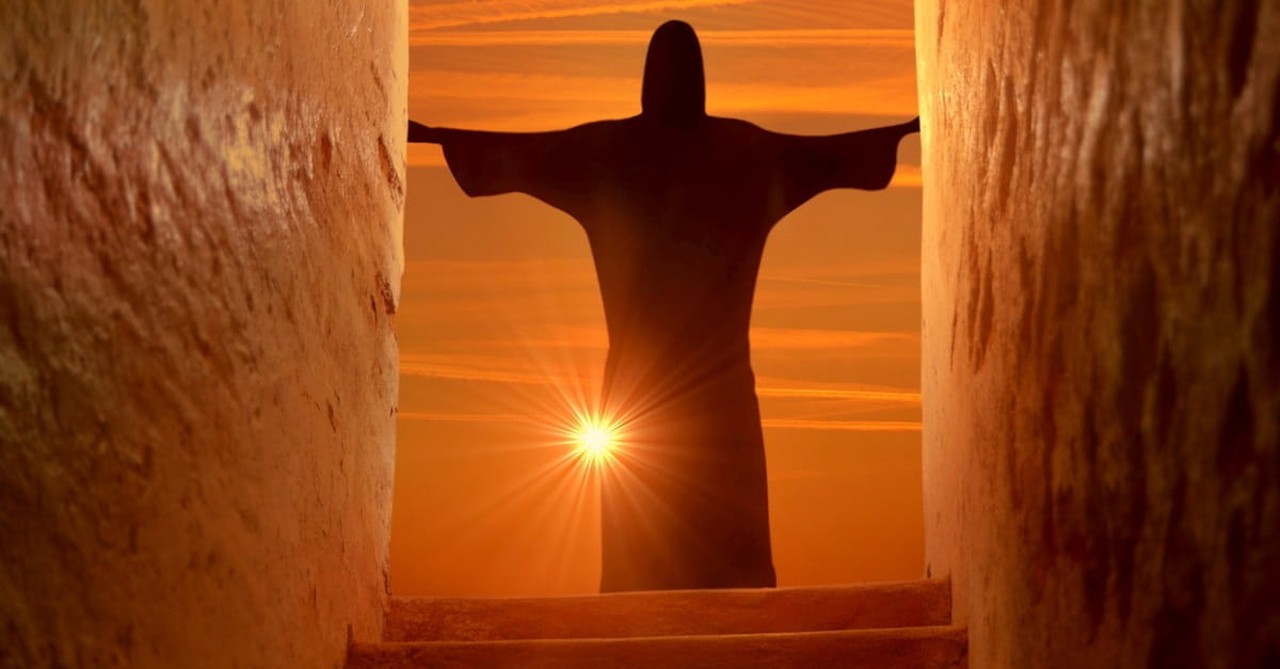10 Things You Should Know about Jesus Christ

It actually sounds a bit silly, even irreverent, to speak of only ten things we should know about Jesus. There are thousands of things to know about him, perhaps millions. Indeed, when we arrive in the new heaven and new earth we will discover that there is an infinity of truths about our Savior that it will be our joy to see, know, and savor. But for now, today, let’s consider the ten things said about him in Colossians 1:15-20. There Paul writes:
“He is the image of the invisible God, the firstborn of all creation. For by him all things were created, in heaven and on earth, visible and invisible, whether thrones or dominions or rulers or authorities—all things were created through him and for him. And he is before all things, and in him all things hold together. And he is the head of the body, the church. He is the beginning, the firstborn from the dead, that in everything he might be preeminent. For in him all the fullness of God was pleased to dwell, and through him to reconcile to himself all things, whether on earth or in heaven, making peace by the blood of his cross” (Col. 1:15-20).
Photo Courtesy: Facebook
Who Is Jesus Christ?

Who Is Jesus Christ?
SLIDE 1 OF 14
Ask a Mormon, “Who is Jesus?” and he will tell you that he was the first-born child of Elohim. He was the product of the physical union between the Father-God and the virgin Mary. For a time, God and Mary were actually husband and wife and they had sexual relations, as any married couple would, and conceived Jesus!
Ask a Muslim and he will answer by saying that Jesus is just like Abraham and Moses and Isaiah. He was a prophet of God. But he was not himself God. In fact, he wasn't even the most important of the prophets. Mohammed, who lived 500 years after Jesus, was God's greatest prophet. Besides, Jesus didn't really die on the cross as Christians believe. He was rescued by God and carried to a safe place in the heavens. Since there was no death there was no atonement for sin. Since there was no death there was no resurrection either.
The Jehovah's Witness would insist that prior to his coming to this earth Jesus was Michael, the archangel! He's only a creature, the first product of Jehovah God's creative work. When he was born of the Virgin Mary, he was divested of his spiritual, angelic nature and became wholly and exclusively a man. Jesus isn't God.
Then there is the theological liberal who believes that because of his exceptional virtue and humility and spiritual sensitivity, God adopted Jesus to be his Son. He endowed him with miraculous powers and through him proclaimed the wonderful message of the Universal Fatherhood of God and the Universal Brotherhood of Men!
So, who is Jesus Christ? The answer to that question, more than anything else, is what sets apart Christianity from every other religion or philosophy or movement. Christianity is distinctively known for what we believe about Jesus Christ. The answer to this question also provides us with a comprehensive view of the origin, meaning, and ultimate purpose of the entire universe.
Photo Courtesy: Unsplash
Jesus Christ must be given preeminence in all things.

Jesus Christ must be given preeminence in all things.
SLIDE 2 OF 14
Here in Colossians 1:18 the Apostle Paul insists that Jesus Christ must be given preeminence in all things. Let me say that again: all things! When I say “all things” I literally mean all. The word “all” or “every” or “each” occurs 8 times in this short paragraph. The simple fact is that Paul’s letter to the Colossians is fundamentally and essentially about the centrality, supremacy, and preeminence of Jesus Christ in all things.
Perhaps this phrase captivates and energizes me because of the pervasive indifference toward Jesus Christ that I see in our society. In fact, the word “indifference” is probably too charitable. The name of Jesus is all too often a cussword, a casual throwaway, an exclamation of frustration or anger, or at times something far worse. It is stunning to think that the most powerful, most beautiful, most loving, most truthful person in the universe, indeed, the very creator of this universe, could be treated with such ugly contempt.
Here in vv. 15-20 Paul provides us with 10 reasons why Jesus is and must be acknowledged as preeminent in all things.
Photo Courtesy: Unsplash
1. Jesus must be preeminent in all things because he is the image of the invisible God. (v. 15a)

1. Jesus must be preeminent in all things because he is the image of the invisible God. (v. 15a)
SLIDE 3 OF 14
Several biblical texts make it clear that God is, by nature, invisible. It isn't just that he has not been seen: he cannot be seen (cf. John 1:18; Romans 1:20; 1 Timothy 6:16; Hebrews 11:27). Even here in Colossians 1:15 he is described as "the invisible God."
So what hope is there for knowing and believing in God? The answer is Jesus! Philip certainly felt the urgency to “see” God. “Lord, show us the Father and it is enough for us” (John 14:8). To which Jesus replied: “Whoever has seen me has seen the Father” (John 14:9).
The word translated “image” refers to a likeness or visible representation. How exact or precise the resemblance is between the original and the copy must be determined by the context. To say someone is “like” another person often conveys the idea of moderate similarity, but not necessarily exact representation. On the other hand, you've undoubtedly heard someone described as “the spitting image” of another. If one may be reverent in saying so, God the Son (Jesus) is the spitting image of God the Father!
We could just as easily answer the question: What is God like? by saying: God is like Jesus. Of course, Paul's point isn't that Jesus “looks like” the Father, as if to suggest the Father has a physical frame and face which the Son reflects. The Son “images” the Father in terms of moral character, will, and the attributes of deity. They, together with the Holy Spirit, share a common divine nature, glory, and purpose.
Photo Courtesy: Unsplash
2. Jesus must be preeminent in all things because he is the firstborn of all creation. (v 15b)

2. Jesus must be preeminent in all things because he is the firstborn of all creation. (v 15b)
SLIDE 4 OF 14
But if being the “image” of the Father seems to confirm the deity of the Lord Jesus Christ, the second phrase in v. 15 appears to destroy it, for there we are told that he is also “the firstborn of all creation” (v. 15).
Does this phrase suggest that Jesus was the first created being in a series of other created beings? Does this mean the Jehovah's Witnesses were right all along? No. Part of the problem is related to translation. We have to determine the best way to render this phrase. Is it, “the first born of all creation,” or “the first born over all creation”? Either is grammatically possible but there is a world of difference between them. Is Jesus “of” creation in the sense that he belongs to it as its initial or original member? Or is Jesus “over” creation in the sense that he is its source and sovereign Lord and maker? I believe it is the latter, and for several reasons.
First, observe how v. 16 begins: “For by him all things were created.” The word “for” indicates that what follows in v. 16 supports or explains what has preceded in v. 15. In other words, Paul is saying, “Here is 'how' Jesus is the firstborn of/over all creation: it is by virtue of his having created all things.” If Jesus were merely one of the many and varied parts of creation, belonging to them as if he were himself a creature, Paul would not have said that Jesus created all things.
Second, to say that Jesus is himself a creature is inconsistent with Colossians 1:17. There Paul declares that the Son of God is “before” all things, similar to our Lord's claim in John 8:58 that “before Abraham was, I am.”
Photo Courtesy: Unsplash
The Firstborn of All Creation (v 15b)

The Firstborn of All Creation (v 15b)
SLIDE 5 OF 14
Third, to say that Jesus is a creature would be inconsistent with what Paul clearly said about him elsewhere, primarily in Philippians 2:6-11 (esp. v. 6).
Fourth, to say that Jesus is a creature would be inconsistent with what John clearly said of him in John 1:3 – “All things were made through him, and without him was not anything made that was made.”
Finally, the word “firstborn” itself does not necessarily mean first in a sequence or first in time. It can also mean first in “rank” or “supreme in dignity.” The point is that the Son, by virtue of being the image of God, has a pre-eminence and exercises a sovereignty over everything else that exists. The word is used this way of King David in the Old Testament. In Psalm 89:27, God says of David: “And I will make him the firstborn, the highest of the kings of the earth.”
The point, then, is that Jesus Christ is utterly unique, distinguished from all of creation because he is both eternally prior to it and supreme over it in the sense, as v. 16 makes clear, that he is its creator.
Photo Courtesy: Thinkstock
3. Jesus must be preeminent in all things because he created all things. (v 16)

3. Jesus must be preeminent in all things because he created all things. (v 16)
SLIDE 6 OF 14
Paul is remarkably specific about the extent of Christ’s creative input. It encompasses literally everything: “all things” (v. 16a), by which he means everything “in heaven and on earth,” be they massive galaxies billions of light years away or the dust particles beneath your feet. The “all things” includes what you can see and can’t see, whether visible but intangible, like a mirage or beam of light; whether invisible but tangible, like a summer breeze or the heat of the sun; whether visible and tangible, like an oak tree or a book or a baseball; even things invisible and intangible like a proton or gravity or a feeling or a dream. He conceived and created them all!
But it doesn’t stop there. He is the architect of every spiritual being, here described as “thrones” and “dominions” and “rulers” and “authorities,” typical Pauline language for every conceivable variety of angel, both good and evil, both hellish and holy. They were all Christ’s idea!
Photo Courtesy: Unsplash
4. Jesus must be preeminent in all things because everything he created exists for him. (v 16b)

4. Jesus must be preeminent in all things because everything he created exists for him. (v 16b)
SLIDE 7 OF 14
Yes, he is both architect and artisan, as well as the aim for which they were created. As Paul put it, “all things were created . . . for him” (v. 16c; oh, blessed preposition!). Whatever is, is, in order that he might be glorified and praised and enjoyed forever. He’s the reason, the goal, the aim, the intent, the point, the purpose, the end, the terminus, the consummation and culmination of every molecule that moves.
Does that please you? Do you find unparalleled joy in knowing that it's about him and not you? Do you find delight in knowing that God didn't create the world so he could have you, but so that you could have him?
5. Jesus must be preeminent in all things because he existed before all things. (v 17a)
Put simply, he is eternal. He never wasn’t (is that grammatically correct)! He always has been, always is, always will be!
Photo Courtesy: Pixabay
6. Jesus must be preeminent in all things because in him all things hold together. (v 17b)

6. Jesus must be preeminent in all things because in him all things hold together. (v 17b)
SLIDE 8 OF 14
Ancient Colossae was located in the Lycus Valley, about 115 miles inland from Ephesus. This was an area that was the center of repeated earthquakes (it was not unlike living in California). We know that a major, devastating earthquake hit this area sometime in a.d. 60 or 61. Much of the city was destroyed and numerous lives were lost.
Most scholars believe Paul wrote this letter during his Roman imprisonment in around 60 a.d. Therefore, either just before or very soon after they received this letter, the entire city of Colossae and its inhabitants were seriously shaken!
Knowing this makes Paul's statement in v. 17 all the more significant. Of Jesus Christ he writes, “And he is before all things, and in him all things hold together” (v. 17). Some translations render this, “in him all things cohere” or “in him all things subsist.” The point being, whatever coherence or unity the universe displays, it is due to the continual exertion of divine power from the Son of God. The risen Christ sustains and upholds all things.
Jesus Christ is the sustaining and supportive power by which all that he has conceived and constructed should stay in being. He didn’t create, only to skip town. From the moment of its inception until now and for so long as he so wills Jesus sustains all things, guides all things, and is in process of providentially bringing all things to their proper consummation in and for him.
Photo Courtesy: Thinkstock
In Him, All Things Hold Together (v 17b)

In Him, All Things Hold Together (v 17b)
SLIDE 9 OF 14
Jesus is the cohesive power that keeps all things intact. If I may say it reverently, he’s the “divine glue” that holds it all in place. This world is a cosmos rather than a chaos because of the continuous exertion of divine power from the risen Christ!
The things that are don’t exist by virtue of some power intrinsic to themselves. Cars and chairs and baseballs and butter and quarks and quasars and, yes, everything, exists and is sustained in their present form by virtue of the incessant energy emanating from Jesus! If at any moment, for any reason, he should loosen his providential and preserving grip on anything, it would disintegrate. It would vaporize and vanish into a vacuum of nothingness.
Every heartbeat, every flutter of an eyelid, every rustle of every blade of grass, every breath you breathe is sustained by the Son of God. As Paul said in Acts 17:28, “in him we move and live and have our being.”
If that earthquake hit Colossae soon after their reception of Paul's letter, I suspect they would have encouraged one another with the reminder that in Jesus, their Lord and Savior, all things still cohere, all things are upheld. If there is a shaking, it is because the Lord has willed it. No matter how widespread the destruction, no matter how disconcerting the loss, Jesus has not lost his grip on this world or their lives.
The “shaking” may also be spiritual or political or economic in nature, but “in him all things (still) hold together.” The world may appear to be swept up and away in moral chaos, but in him all things still hold together. One crisis may crash in upon another, like the incessant waves of the ocean pummeling the shoreline, but in him all things still hold together.
The universe and everything in it coheres and is held together not by an idea or by a virtue or by some property present in the sub-atomic world of particle physics. Everything in it coheres because of a Person!
Photo Courtesy: Unsplash
7. Jesus must be preeminent in all things because he is the head of the Church. (v 18a)

7. Jesus must be preeminent in all things because he is the head of the Church. (v 18a)
SLIDE 10 OF 14
It would be easy to get discouraged if it weren't for the fact that Jesus is the Head of the Church. The “church” here is probably a reference to the universal body of Christ, that spiritual organism comprised of all believers in all of history. But if Jesus is the head of the universal church in general, he is also the head of every local church in particular. These many and varied local expressions of his body belong to him. If a local church dissolves or strays off course, the Church, the universal body perseveres. When Jesus first promised to “build” his Church (Matt. 16:18) he assured us that the gates of hell would not prevail against it. I have to keep reminding myself of this, as I suspect you do as well.
When Paul says that Jesus Christ is the “head of the body, the church,” he means to tell us that Christ is the sovereign, ruling authority over his people, as well as the source from which we, his body, derive all spiritual sustenance and power. As such, we can rest assured that our Lord will neither permit his body to drift into utter moral and theological chaos nor to die of spiritual starvation and thirst.
He exerts a functional authority over his body. He can be trusted to govern and direct and provide instruction and power for the life of his church if we will but look to him and draw from the resources he so generously supplies. The relationship between Jesus as Head and the church as Body is organic and living and vital. He exercises sovereign control over us and we are ever and always dependent on his abiding influence and presence.
Photo Courtesy: Unsplash
8. Jesus must be preeminent in all things because he is the firstborn from the dead. (v 18b)

8. Jesus must be preeminent in all things because he is the firstborn from the dead. (v 18b)
SLIDE 11 OF 14
That is to say, he was the beginning and founder of a new humanity, a new people, by virtue of his having been the first to rise, never to die again. When God the Father raised him from the dead and glorified and exalted him to the right hand of the majesty on high, he became the first-fruits of that resurrection guaranteed for all who are united to him (cf. 1 Cor. 15:20-23; Rev. 1:12-18).
There is a reason for this. There was a goal in view. It was so that Jesus might be seen and known and glorified as preeminent in everything! God raised Jesus from the dead and placed him in authority over the church so that he, and only he, might be seen and savored, recognized and relished, exalted and enjoyed as the sovereign Lord, the one for whom all things were made and to whom all praise should be given.
Photo Courtesy: Thinkstock
9. Jesus must be preeminent in all things because he is God. (v 19a)

9. Jesus must be preeminent in all things because he is God. (v 19a)
SLIDE 12 OF 14
Don’t be misled by the word “dwell”. Paul is not suggesting that there was a man named Jesus in whom deity or divinity resided. In other words, the fullness of deity didn't dwell in Jesus the way the Holy Spirit dwells in you and me. When God the Son became a human, the fullness of the divine nature “became flesh” (John 1:14), yet without ceasing to be divine. The divine and the human united in the one person of Jesus Christ.
Paul literally says that “all the fullness” was “pleased” to dwell in Christ. But “fullness” is not a person and only a person has conscious and willful intent; only a person can be “pleased” to do something. So both the NASV and the NIV translate the verse to indicate that God the Father is the subject of the verb: it was his good pleasure that the fullness of the divine nature dwell in Christ.
Not only is deity found extensively in Jesus, it is found exclusively in Jesus. He alone is God, which means that no one else is. Not Buddha, nor Mohammed, nor any other religious leader or philosopher or sage.
Photo Courtesy: Thinkstock
10. Jesus must be preeminent in all things because he is our Savior. (v 20)

10. Jesus must be preeminent in all things because he is our Savior. (v 20)
SLIDE 13 OF 14
We first need to understand the need for reconciliation. As we noted in v. 16, all things were created in, by, and for Christ. What Paul does not mention here is what happened to this creation after it came into existence. Because of the fall of Adam, the unity, harmony, and consonance of the original creation have suffered a devastating rupture. That pristine beauty of Eden has been horribly marred. Disharmony was brought to bear on God's handiwork. Alienation (between God and man, between man and man, and between man and nature) now characterizes the cosmos. In a word, the totality of creation is mired in disruption and suffers from what one can only describe as moral, spiritual, and physical discombobulation.
In a word, we and all of creation are at enmity with God. We are at war with him. Our sin has put us in an adversarial position with respect to our Creator. And the only power that can bring peace, the only means by which we can be reconciled and redeemed and forgiven and relate to God as Father and Friend is “by the blood of his [Christ’s] cross” (v. 20b).
Does this verse teach universalism? No. In Colossians 2:15 we are told that God through Christ has vanquished or conquered demonic forces. He did not save them. The point is that “through the work of Christ on the cross, God has brought his entire rebellious creation back under the rule of his sovereign power” (Moo, 136-37). He has restored order from the chaos. This order comes about not only through the salvation of his people but also through the subjugation of his enemies.
What I’m saying is that the “reconciliation” Paul has in mind includes the notion of subjugation and the bringing to naught of God's enemies. God’s reconciliation of all things includes not only the salvation of his people but also the triumph and victory over those who are and forever will be his enemies.
Thus the demonic hosts and unbelieving humanity may be spoken of as encompassed by and participating in the “reconciliation”, not in the sense that they are ultimately saved, but insofar as they will be subjugated, pacified, and rendered incapable of any longer disrupting the harmony and beauty of God's creative handiwork. According to Scripture, all evil will be excluded from heaven, all wickedness banished from its boundaries, all unbelief confined in hell (see Revelation 21:8,27; 22:15).
The point is that “peace” can be achieved in one of two ways: either by the removal of hostility through grace or by the subjugation of enemies through power and judgment. Although all creation will ultimately bow the knee and confess that Jesus Christ is Lord to the glory of God the Father (Phil. 2:10-11), the elect will do it voluntarily, by grace, whereas the non-elect will do it by compulsion, as an expression of their judgment.
Photo Courtesy: Thinkstock/mbolina
To what extent does your life reflect the preeminence of the risen and living Christ?

To what extent does your life reflect the preeminence of the risen and living Christ?
SLIDE 14 OF 14
Are the affairs of your daily existence so ordered that Jesus is seen to be preeminent? Is there any doubt in the way you use your time, your money, and your talents that Jesus is the source and center of it all? Is he your treasure, or is it found in the documents and deeds lying in a bank vault? Does he govern your life in such a way that all may know he is Lord? How visible is the supremacy of Christ in the way you talk and relate to others and fulfill your responsibilities at work and in the home?
Resist the temptation to restrict the preeminence of Christ to one day a week, as if he were Lord and worthy of praise for only one hour on a Sunday morning. He is to be honored as preeminent not only over all things but at all times, in every context, in every circumstance.
Resist the temptation to isolate the preeminence of Christ or to confine it to religious matters. He has been given preeminence “in all things”! Everything in all of life, both inside and outside the church, exists to make him look good. Not to make him good, for he is eternally and self-sufficiently good, but to reveal and disclose and enable all to see that he is, in fact, good and glorious and worthy of our whole-hearted and exclusive devotion.
This article originally appeared on SamStorms.com. Used with permission.
Sam Storms I am an Amillennial, Calvinistic, charismatic, credo-baptistic, complementarian, Christian Hedonist who loves his wife of 45 years, his two daughters, his four grandchildren, books, baseball, movies, and all things Oklahoma University. In 2008 Sam became Lead Pastor for Preaching and Vision at Bridgeway Church in Oklahoma City, Oklahoma. Sam is on the Board of Directors of Desiring God, and also serves as a member of the Council of The Gospel Coalition. Sam is a past President of the Evangelical Theological Society, and currently serves on its Executive Committee.
Photo Courtesy: Thinkstock
Originally published July 16, 2019.









